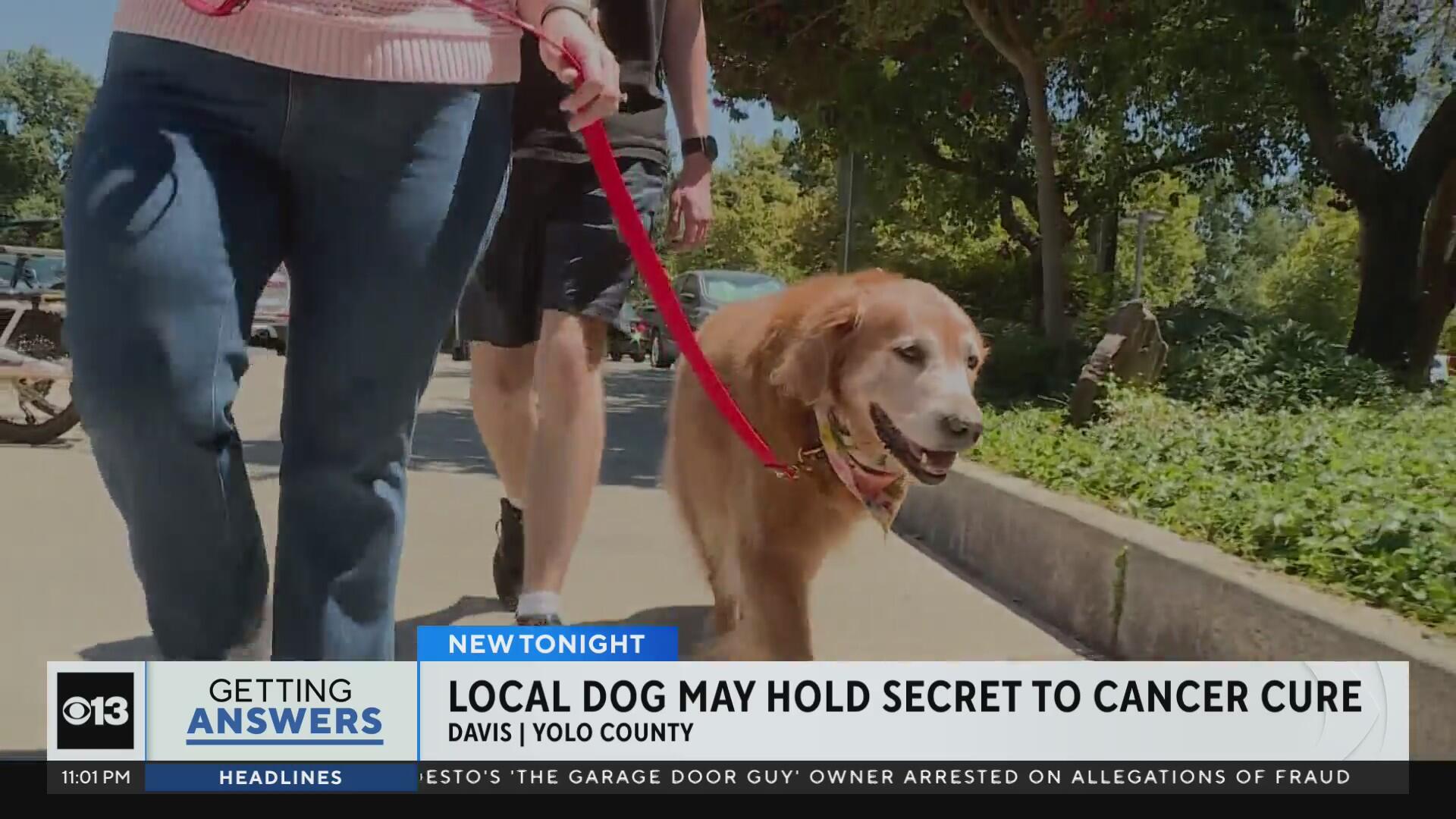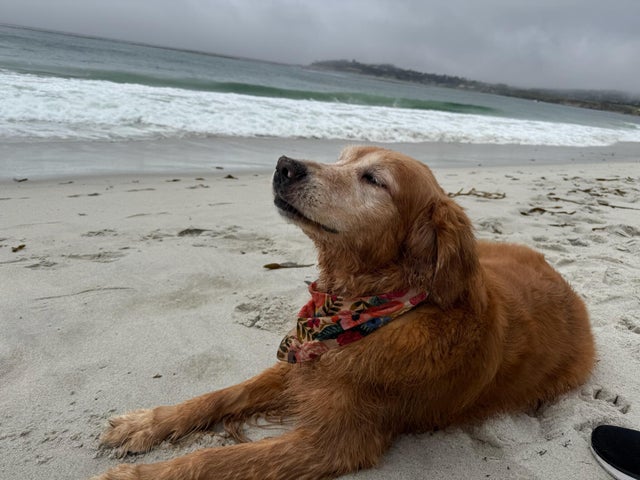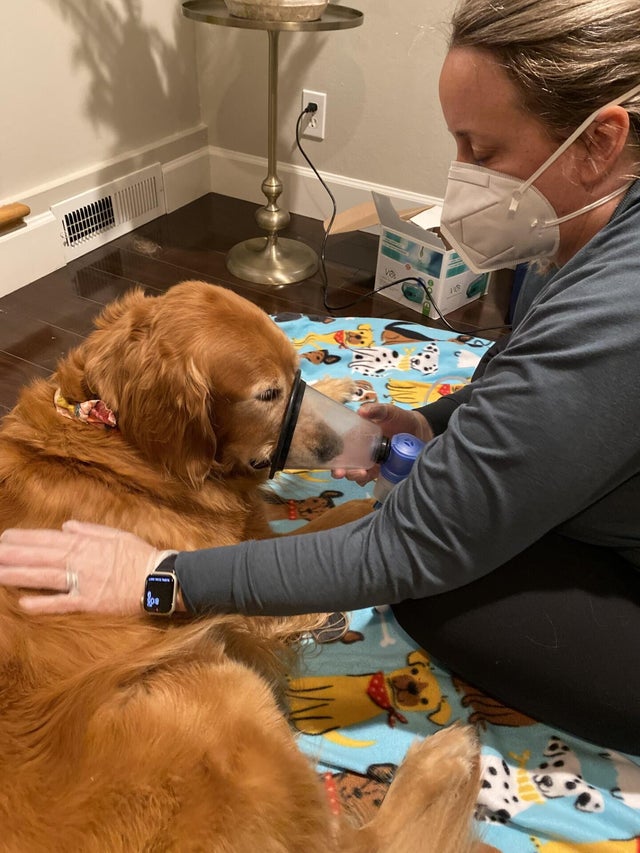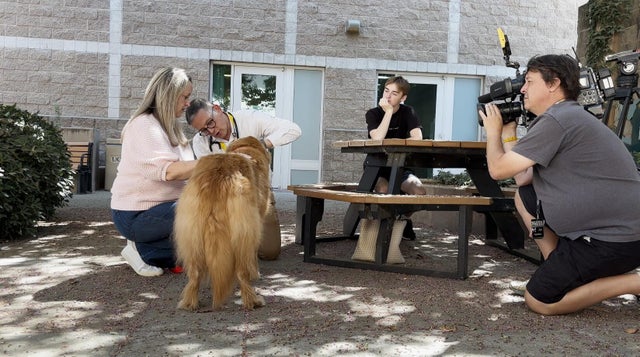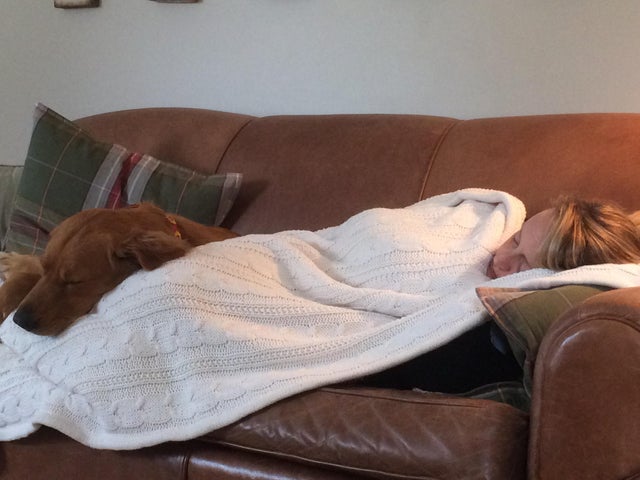A golden success: Dog's terminal cancer diagnosis dropped after UC Davis clinical trial
A dog facing a daunting diagnosis had one last hope at UC Davis' veterinary hospital to turn things around.
Lola, the golden retriever, was given a terminal cancer diagnosis with just a couple of months to live. An aggressive cancer of the mouth spread to her lungs at 9 years old.
Lola's family prepared to keep her comfortable and say their goodbyes to the dog that was more of a family member than a pet.
"For those particular diseases, once it spreads to the lung, there is very little we can try. Even chemotherapy or radiation therapy at that point, the median survival is usually around 60 days," said Dr. Robert Rebhun, director of the Veterinary Center for Clinical Trials at UC Davis.
Now two years later, Lola is still fighting thanks to a clinical trial at UC Davis that is credited with saving her life.
To this day, Lola is cancer-free and will turn 11 years old in October.
Researchers at UC Davis are working to study what worked and, as part of their trial research, are hoping to uncover how they can make more patients successful, like Lola.
Dr. Rebhun has been working through multiple rounds of clinical trials for several years to understand canine cancer better and help find reliable treatments. The studies impact not only animals, but are also in collaboration with the UC Davis Comprehensive Cancer Center for human health, too.
"What we found was that when we did this inhaled treatment, a subset of the dogs did respond quite well, but the majority of the dogs did not. So, the subsequent trials have really attempted to see if we can improve on the number of dogs that respond or figure out which dogs will respond and why," Rebhun said.
Rebhun decided to enroll Lola as one of ten dogs in his clinical trial study titled, "Intravenous Doxorubicin and Inhaled IL-15 Immunotherapy for Treatment of Lung Metastases."
The study was sponsored by the National Cancer Institute at the National Institutes of Health.
The trial tested inhaled immunotherapies on canine cancer and had no recorded side effects. Lola's owner administered the treatments from the comfort of their home in San Jose.
"That stimulates the immune system to hopefully recognize the cancer," Rebhun said.
At first, Lola failed out of the trial. Later, the delayed response came that changed everything.
"The big surprise was a month or so after finishing that when we went to check the X-rays and realized everything was gone," Rebhun said. "The interesting thing with Lola is because it seemed like things were getting worse, so she actually went on to get radiation therapy. That all occurred before we saw the response."
Her terminal diagnosis two years ago has now disappeared.
"So what we are trying to figure out is what makes Lola different, what makes her part of that 10% that responded. If we can understand why we are seeing that response, hopefully we can either, one, predict the dogs that will respond, or two, adjust other things," Rebhun said.
Rebhun said the clinical trial Lola participated in has wrapped up, and the team of researchers is working to publish their findings now.
For Lola's family, each trip to UC Davis' veterinary hospital for her cancer check-ups comes with a mixture of hope and anxiety.
"I try to not let a day go by that I'm not in awe of what UC Davis and the science was able to do for her," said Allison Roth, Lola's owner.
CBS13 tagged along for one of Lola's appointments in early August.
Dr. Michael Kent, Lola's veterinarian, checked Lola for any physical signs of the return of cancerous tumors in her mouth and found nothing. For more good news, the X-rays of Lola's lungs also came back completely clear.
"Really, I saw nothing. Which is amazing," said Dr. Kent, showing CBS13 Lola's new scans.
The news, each time, leaves Allison breathing a major sigh of relief.
"I'm greedy now, I think the oldest golden retriever has lived to be about 20 years old, can we break the record?" she laughed.
Allison also knows a thing or two about a tumor.
When Lola was just a puppy, she helped Allison heal from her own life-threatening tumor, which she had to be treated for at the Mayo Clinic in Minnesota.
Lola never left her side.
"She was home with us for a couple of months and I was having brain surgery. It's two ends of the journey," said Allison. "I think there's this [feeling], I wanna take care of her the same way she took care of me."
Lola's loving family is soaking up every second of extra time the life-saving care has given them.
"I would hope she's not one in a million in the future. I would hope this would become the normal experience," said Max Roth, Lola's "brother."
The golden girl is shining a new light on the future of cancer care.
"We get super excited, but we also remember there's nine other dogs in this study that weren't Lola. It motivates us to keep going," Rebhun said.
It's step one in one day perfecting cancer treatment and making it available to not just all animals, but humans, too.
"We have a lot more long-term successes now. That's why I do this. Because we can beat cancer," said Dr. Kent.
Lola will continue to receive regular checkups every few months at UC Davis Veterinary Hospital. By now, her family knows most of the staff by name.
"We are so grateful," said Allison. "Whenever I reflect on her story, I'm always in a state of awe, the shock again of it."
Learn more about the trial and its findings on the UC Davis veterinary medicine website.
